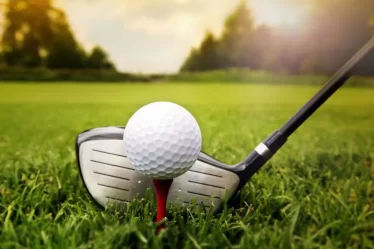
Selecting the right set of golf irons can significantly impact a player’s performance on the course, making the decision a critical one for golfers of all skill levels. As the backbone of a golfer’s bag, irons are essential for executing a wide range of shots from various lies, whether approaching the green or navigating tricky hazards. However, with an overwhelming array of options available, each designed to cater to different swing styles and handicap levels, choosing the best golf irons can be a challenging endeavor. This article aims to demystify the selection process by providing guidance tailored to individual skill levels—from beginners just starting their journey to advanced players seeking to refine their game. We will explore the key features of irons, including forgiveness, shaft options, and clubhead design, while also considering how these elements correspond to various handicaps. By understanding the unique needs of each golfer, we hope to equip readers with the knowledge necessary to make informed choices that enhance their performance and enjoyment of the game. Whether you’re seeking to elevate your current play or simply enjoy the sport more fully, this comprehensive guide will serve as an invaluable resource in your quest for the perfect set of golf irons.
Understanding Golf Irons for Beginners
Golf irons are a fundamental component of any golfer’s set, designed primarily for accuracy and control rather than distance. These clubs are categorized by their numbered designation, ranging typically from 3 to 9, with lower numbers representing longer clubs that hit the ball farther but with less loft. Beginners should familiarize themselves with the purpose of each iron; for example, the 7-iron is versatile for mid-range shots, while the 9-iron is suited for shorter, more precise approaches to the green. The difference in loft affects not only how far the ball travels but also its trajectory, making it crucial for players to practice with various irons to develop a feel for each club’s unique characteristics.
Understanding the construction and design elements of golf irons is also vital for beginners. Most irons feature a clubhead with a flat face and a shaft that varies in length according to the club’s number. The center of gravity, weight distribution, and the material of the clubhead can significantly influence performance. New players should pay attention to the type of iron that feels comfortable in their hands, as well as the balance and feedback they receive upon impact with the ball. By experimenting with different styles—such as players’ irons, game improvement irons, and super game improvement irons—beginners can find the best fit for their skill level, ultimately enhancing their confidence and enjoyment of the game.
Mid-Handicap Players: Selecting the Right Irons
For mid-handicap players, selecting the right golf irons is essential for improving performance and achieving greater consistency on the course. These players typically possess a solid foundational skill set, allowing them to benefit from the technological advancements found in modern iron designs. Game improvement irons, characterized by their larger clubheads, wider soles, and enhanced forgiveness, are particularly advantageous for this group. These features help to reduce the likelihood of mishits and promote more stable ball flight, thus aiding in distance control and accuracy.
Moreover, the choice between forged and cast irons can significantly influence a mid-handicap player’s game. Forged irons often provide a softer feel and greater feedback, appealing to those who prioritize workability and shot shaping. Conversely, cast irons generally offer a larger sweet spot and are often more forgiving, making them suitable for players looking to enhance their confidence with every swing. Ultimately, the decision should also take into account individual playing style and preference, as well as the specific challenges faced on the course. Testing various options and seeking professional fitting can lead to a more tailored selection, ensuring that players find the right set to elevate their game.
Advanced Golf Irons for Low Handicaps
For low handicappers, the pursuit of precision and control in their golf irons becomes paramount. These players often seek advanced models that feature a combination of high-quality materials and innovative technologies designed to optimize performance. Blade-style irons, which are typically favored by skilled players, provide superior feedback and allow for greater shot shaping capabilities. This level of customization enables low handicappers to execute a variety of shots with confidence, facilitating a higher degree of creativity in their play.
Additionally, low handicappers may gravitate toward irons that offer a balanced blend of distance and accuracy. Features such as variable face thickness and strategically placed center of gravity can enhance ball speed while maintaining control over trajectory and spin. This fine-tuning is critical for players looking to lower their scores, as it allows for more precise approach shots and improved performance on the greens. Selecting the right golf irons at this skill level not only reflects a player’s expertise but also complements their ongoing development and competitive aspirations.
In conclusion, selecting the right golf irons is crucial for optimizing performance on the course, regardless of your handicap level. By understanding the unique characteristics and benefits of various iron types—whether they be game improvement, players’ irons, or specialty options—you can make a more informed decision that aligns with your individual playing style and skill level. Remember, the best golf irons are those that not only enhance your game but also inspire confidence in your swing. Investing time in trying out different options and seeking professional advice can lead to significant improvements in your overall gameplay. With the right set of irons in your bag, you’re well on your way to elevating your golf experience and achieving your personal best.



